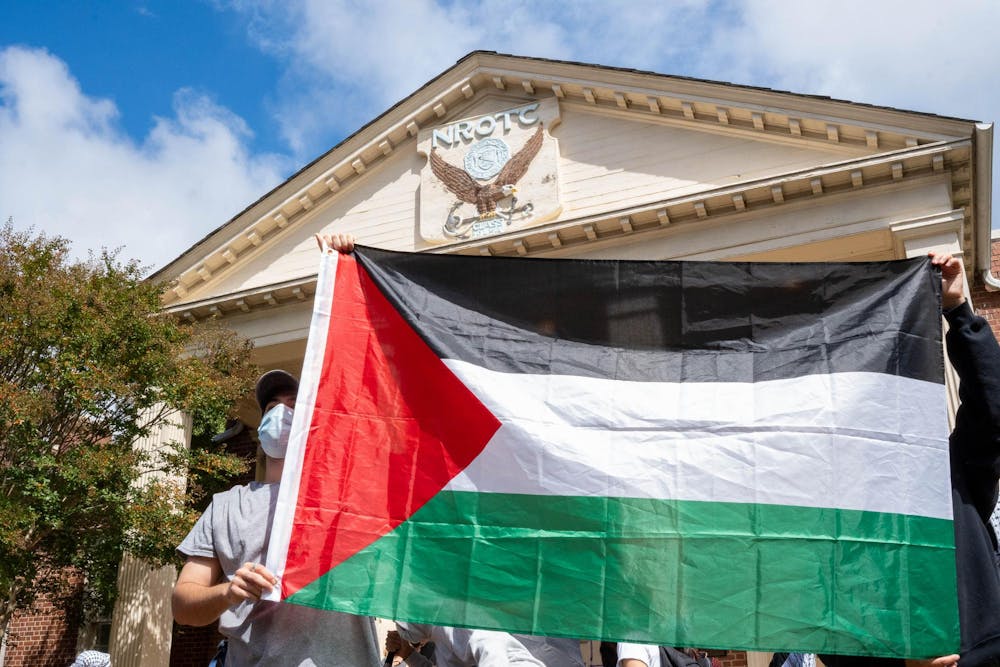Protest is an integral part of our nation. Freedom of assembly is one of the five liberties enshrined in the First Amendment to the U.S. Constitution, and it has been an indispensable part of our progress as a country. From the Boston Tea Party to the Civil Rights Movement to present day, protest continues to be used to challenge the status quo.
On Sept. 19, a pro-Palestine protest demanding UNC divest from Israel began with students walking in and out of various buildings. Several of those buildings, including the ROTC Naval Armory building, were spray-painted and vandalized. The American flag in front of the armory was also replaced by the Palestinian flag.
In a statement later that day, Chancellor Lee Roberts wrote, “Free expression and peaceful protest are, of course, in line with Carolina's best traditions.” But they could not tolerate vandalism of public property or disruption of classes, he wrote.
As protests related to the genocide in Gaza have emerged, Roberts' sentiment has been echoed by university administrations across the country. However, the notion that effective protests will not be disruptive is infantile, to say the least.
This is not UNC's first experience with protests. In 1968 with support from Black Student Movement, dining hall workers went on strike due to the food service underpaying African-American workers. As the protests increased in size, the North Carolina National Guard was nearly called in by the governor and chancellor — undeniably a disruptive situation. However, without the actions of protestors, workers would have been unevenly paid because of their race. Although the situation is different, its importance warranted the discomfort and disruptiveness that brought attention to the issue.
If the administration finds the recent protest unacceptable, then a question arises — what should be done instead? The Sept. 19 protest follows months of attempts from students to call for UNC to divest from a country actively engaging in a genocide against unarmed civilians. This is not an isolated incident. In fact, last semester saw numerous protests that were predominantly peaceful; most prominently, the Gaza Solidarity Encampment.
Throughout the encampment, students participated in peaceful and meaningful dialogue, with no real disruption to campus. Regardless, these students were arrested. If protest is only supported when it has no impact, then it is inherently meaningless. An escalation of protest methods is a natural progression of students' demands not being met. The University should reasonably expect students to engage in increasingly disruptive forms of protest — that's quite literally the point.
The organizers of pro-Palestine protests are met with a unique challenge. With the conflict happening thousands of miles away from campus, how can students be reminded of the violence and tragedy that cannot be ignored for people living in Palestine, or for students whose families are being directly impacted? The very idea behind the protests is to increase this engagement, because with increased distance, apathy is that much stronger. With persistent lack of recognition from campus administration during multiple peaceful protests, this engagement becomes more difficult to achieve and inevitably pushes protestors towards more extreme means.
We must remember the historical societal rejection of protests that, in retrospect, seem valiant and critical to our betterment as a people. It is childishly simple to dance around the ease of hindsight bias and claim that, had we been born decades ago, we would have been on the “right side of history” in other issues marred by societal disruption.




